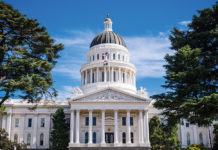Driving up the Oregon coast we heard a radio interview with a woman, someone who lived in the far-off troubled Arab world, I think she was Lebanese, saying she takes her family to the beach because people don’t usually bomb beaches. That’s something I never thought about. But here I was imagining a mother grabbing sunhats and sand buckets to take time off from war.
Later we stopped for the night in the resort town of Seaside, Oregon, one of the longest, softest stretches of dunes and beach grass you can hope to share with end-of- summer tourists. Lots of families, lots of languages, but I doubt any were worrying about terrorists or rebels or government thugs.
The only recognized danger were the tsunami signs with an outline of a pouncing wave and a reminder to run like hell to high ground were the ocean to attack. After dark the beach lit up with small fires but they were made from driftwood and for roasting marshmallows.
Without that woman who thinks of her beach on the Mediterranean Sea as a refuge I wouldn’t have been paying the same close attention to the Oregon beach. You need to be in touch with all the world to know what you have. You need to make these connections. You need to find a news station on the radio. You need to pick up a newspaper. At least I do.
I can’t give up the news. I know some people do and I understand thinking it’s all so enraging and terribly sad and how can you sleep and what can one person really do about any of the awfulness anyhow? But how can you ignore the world we’re living in? All of it, including a scared mother in Lebanon who really isn’t that far away at all.
Americans get their news from television, the internet, newspapers and radio. In that order. A lot of young people don’t seek out the news because, they tell pollsters, they don’t find it relevant. I once heard a young man say he gets all he needs to know from Facebook and I wanted to throw up.
Before driving out of California we stopped at a coffee house in Arcata. My husband and I were the only ones reading a hands-on newspaper. The largely young crowd stared at phones and iPads. It’s a college town and they looked like smart, caring people who relate to the world. Maybe they were reading the news online and were deep into the debate over Syria. Or, they could have been ordering new hiking boots.
A person holding a newspaper looks to be someone who is interested in the news, but I’m prejudiced. My husband and I spent our careers in newspapers. To give up papers and the printed page would be like a baker renouncing bread. On a road trip, the deal is that he drives and I read the newspaper out loud even though in many places it’s easier to find a drive-through espresso shack than a newspaper rack. Home from a trip, I make myself read through piles of old papers because, you know, what if I missed something.
Two good old pals from my early newspaper days and I meet up every year. They are more inclined to grab their news from one small screen or another than I am. But at our last reunion, in San Francisco, we ordered room service coffee and two Sunday papers and spent much of the morning in our hotel in pajamas gorging on the good, the bad and what can you do about it.
“I can’t stand to not know what’s going on,” said one.
Susan Swartz is an author and local journalist. You can also read her at www.juicytomatoes.com and hear her Another Voice commentary on KRCB-FM radio on Fridays. Email is su***@ju***********.com.
67.4
F
Healdsburg
April 18, 2025







